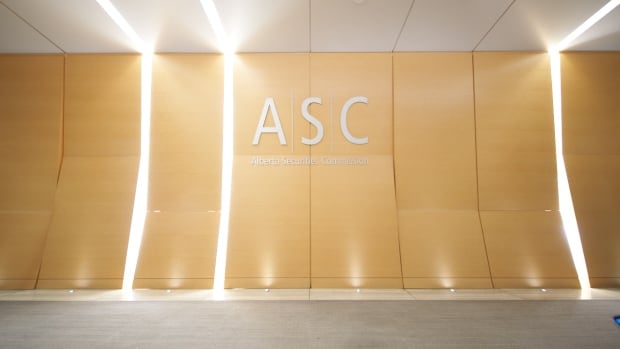
18 Jan Edmonton man and his cryptocurrency company sanctioned for breaching Alberta securities laws
An Edmonton man who admitted to breaching Alberta securities laws by illegally distributing securities to investors and acting as an unregistered dealer has been ordered to pay a $40,000 penalty and stop trading and buying securities or derivatives.
In a hearing decision posted to its website on Jan. 12, the Alberta Securities Commission ordered that Devon Christopher Edwards, as the director of KB Crypto Inc., engaged in “serious misconduct” that resulted in “considerable financial losses” to investors estimated at more than $400,000.
“The respondents’ misconduct contravened important securities law provisions designed to protect investors and maintain the integrity of the capital market,” the commission said in its decision.
Edwards and the company did not file prospectuses for investment contracts and did not register under Alberta securities laws, according to the decision.
Prospectuses are lengthy, complex documents that include financial information and details about a business’s management, history and offering risks, said Calgary lawyer Matt Burgoyne, co-chair of Osler, Hoskin and Harcourt’s digital asset and blockchain group.
Burgoyne, who was not involved in the case, said the process of registering to be a securities dealer takes months and there are ongoing disclosure requirements for registrants.
The rules are designed to prevent situations like the one affecting KB Crypto investors, Burgoyne said.
“The likelihood of that happening through a registered dealer is very low because of all these checks and balances that are involved in the registration process,” he said.
Automated trading
According to the decision, Edwards incorporated KB Crypto in the Bahamas in 2021.
Between February 2021 and November 2022, he presented himself as an expert in high-frequency or automated trading and asked investors to contribute to a trading pool, the decision said.
A July 2021 news release said the pool’s “state-of-the-art real AI system” kept trading risk low. The company promised weekly payouts, with average monthly returns on investment of between five and 15 per cent.
The company also offered a three per cent referral bonus to people who brought new investors to the pool.
According to the decision, Edwards converted bitcoin from his investors into U.S. dollars or different types of crypto currencies.
He then used that money to buy and trade — through online platforms in other countries — contracts for difference.
Contracts for difference, or CFDs, are agreements between parties based on the difference in entry and closing prices.
The securities commission says Edwards raised about $600,000 from 75 investors. At least four were Alberta residents. Two lived in Ontario and one lived in British Columbia.
Investors received returns of nearly $248,000 and according to Edwards, were repaid about $186,000 after the company ceased operations in November 2022.
According to a statement of admissions signed by Edwards in September, investors lost approximately $416,000 because of the unsuccessful trading.
Edwards contacted the ASC in December 2021 and told the regulator about his capital-market activities, but did not respond to its request for a written description of them or provide an analysis explaining why registration wasn’t needed.
He and the company also did not apply for registration or follow the regulator’s instructions to cease operations before being registered.
Reached by CBC News, Edwards declined to comment for this story.
In its decision, the ASC said Edwards and the company provided “prompt, fulsome and helpful co-operation” with the investigation.
$40,000 penalty
Edwards must pay $40,000 to the ASC as a penalty, plus $10,000 in costs for the investigation and hearing.
According to the decision, he is unemployed, with no income and limited assets. He and the company told the ASC that the company has no assets.
KB Crypto is permanently barred from trading, buying, and advising securities or derivatives and Edwards has certain market-access bans for five years, or until he pays the fine, whichever is later.
“This decision is an example of a regulator that is really trying to protect investors and is trying to set an example and deter others from doing the same thing,” said Burgoyne, the Calgary lawyer.
Investors can verify a person or firm is registered using a search tool from the Canadian Securities Administrators.
The CSA also has a list of cryptocurrency trading platforms authorized to do business with Canadians.
Kyle Mackenzie, partner and head of cryptocurrency taxation at Metrics Chartered Professional Accounting in Victoria, said a referral bonus offer should be a red flag for investors since they rarely result in beneficial investment outcomes.
Mackenzie, who was not involved in the case, said promising consistent returns of a certain percentage per week is another red flag.
“If something’s too good to be true,” he said, “it’s definitely too good to be true.”
